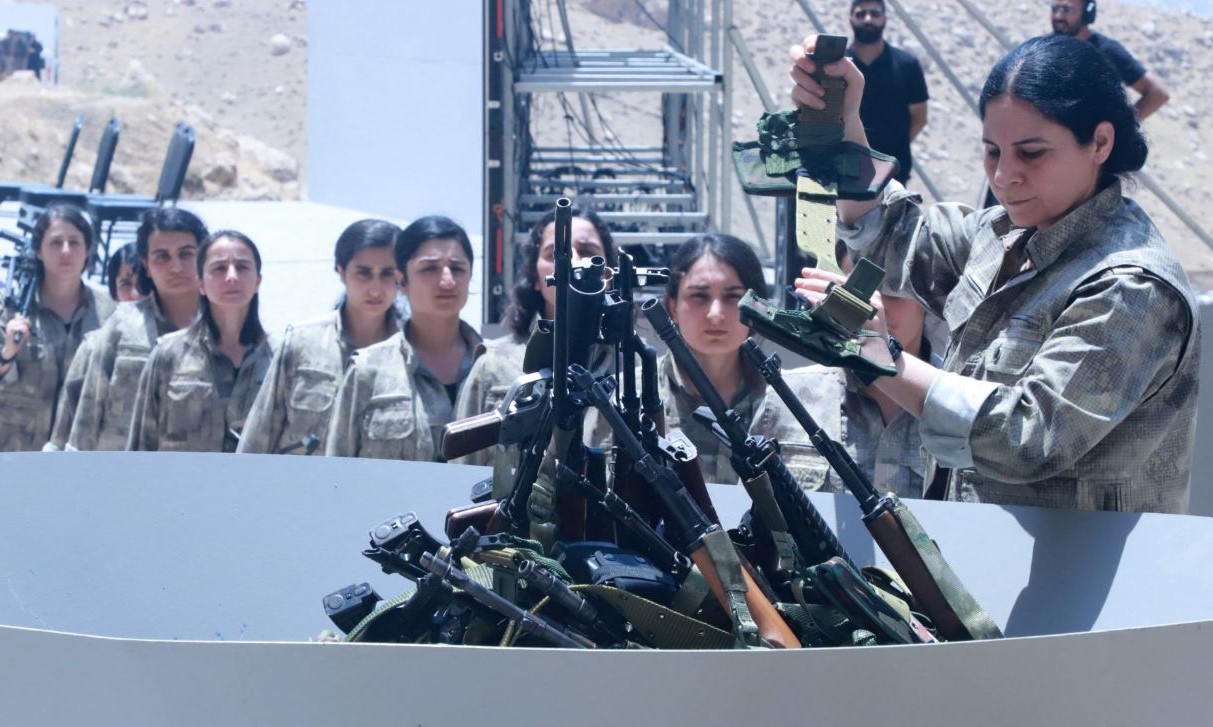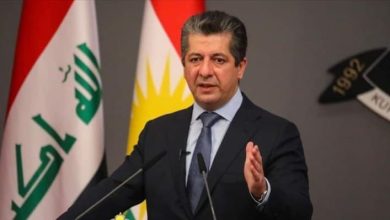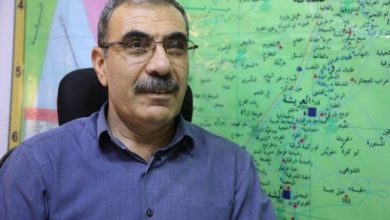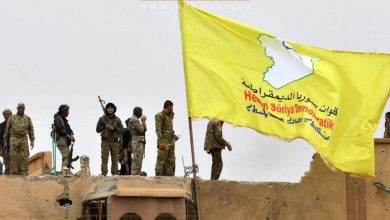For true peace, we must look beyond the optics of symbolic gestures and confront the difficult questions of accountability and justice that linger behind the PKK’s recent disarmament ceremony
Dr. Zana Sadeqi – Human Rights Activist & Expert in International Law
On July 11, 2025, at 11:25 AM, a ceremony was held near Sulaymaniyah in the Kurdistan Region of Iraq where 30 Kurdistan Workers’ Party (PKK) militants symbolically burned their weapons. This event, hailed by PKK-affiliated media as a historic step towards peace, was attended by representatives of political parties, civil society organizations, and journalists. It was ostensibly in response to the imprisoned leader Abdullah Öcalan’s call for a democratic resolution to the Kurdish issue. However, examining this event from a humane, realistic perspective, and based on the principles of international human rights and humanitarian law, raises serious concerns about the sincerity, scope, and implications of this symbolic act, especially given the PKK’s long history of violence and human rights abuses.
Founded in 1978, the PKK has been responsible for the deaths of over 40,000 people, including civilians, security forces, and militants, during decades of armed struggle against Turkey. While the group’s origins lie in resistance to the Turkish government’s Pan-Turkist and assimilationist policies, its methods have been severely criticized by independent observers and human rights organizations. Iranian Kurdistan Human Rights Watch (IKHRW) has documented serious human rights violations by the PKK, including the recruitment and disappearance of approximately 700 Iranian Kurdish children who were used as child soldiers by the PKK and its affiliated branches, such as PJAK (Kurdistan Free Life Party Party). These actions constitute war crimes under Article 8(2)(b)(xxvi) of the Rome Statute of the International Criminal Court, which prohibits the conscription or enlistment of children under the age of 15 into armed groups.
Furthermore, Iranian Kurdistan Human Rights Watch (IKHRW) reports reveal the disappearance of women and girls in PKK camps, the inhumane conditions imposed on group members, and the transfer of some individuals to satellite branches like PJAK or YPG (People’s Protection Units in Syria). These actions are clear violations of the Geneva Conventions and their Additional Protocols, which mandate the protection of civilians and unarmed individuals in armed conflicts. The fundamental question remains: Can the symbolic burning of a few weapons truly close the dark chapter of these crimes?
PKK-affiliated media, along with France 24, Le Monde, Al Jazeera, and The New York Times, have lauded this ceremony as a historic step towards peace and democracy, emphasizing Abdullah Öcalan’s pivotal role in this process. A statement from the Democratic Society and Peace Group, read at the ceremony, spoke of the group’s commitment to abandoning armed struggle and advancing democratic goals. However, this optimistic narrative is inconsistent with historical realities and existing evidence.
Firstly, the PKK has a long history of using symbolic gestures to gain international attention and legitimize its activities without demonstrating a genuine commitment to ending violence. For example, past ceasefires have often been violated, leading to renewed conflict. Secondly, this ceremony alone cannot erase responsibility for past crimes, including the murder of approximately 830 civilians by PJAK (the PKK’s Iranian branch) and the abduction of hundreds of Iranian Kurdish children and adolescents. According to the Basic Principles and Guidelines on the Right to a Remedy and Reparation for Victims of Gross Violations of International Human Rights Law (adopted by the UN General Assembly, 2005), victims of war crimes and human rights violations have the right to receive reparations, justice, and truth. The symbolic burning of weapons without accountability from PKK leaders, particularly Abdullah Öcalan, for these crimes cannot fulfill these requirements.
One of the key ambiguities of this event is the status of PKK’s satellite branches, particularly PJAK. Evidence suggests that PJAK is entirely under PKK’s organizational and operational control. For instance, PJAK’s current leader, Amir Karimi, served for over a decade in the YPG, the PKK’s Syrian branch, and was appointed to PJAK’s leadership by the PKK’s leadership council. This structural dependency indicates that any disarmament or change in approach by the PKK must also include its satellite branches. However, the statements made at the ceremony made no mention of PJAK’s future, reinforcing the ambiguity of whether these groups will also abandon violence.
According to Iranian Kurdistan Human Rights Watch (IKHRW) reports, PJAK has been responsible for the assassination of hundreds of civilians and the use of children as soldiers. These actions violate the Convention on the Rights of the Child (Article 38) and the Optional Protocol to the Convention on the Rights of the Child on the Involvement of Children in Armed Conflict. Without transparency regarding the future of these branches, the PKK’s claim of ending violence is not credible.
Transitional justice and accountability for war crimes and human rights violations are fundamental principles of international law. Examples like the trial of Radovan Karadžić, the Bosnian Serb leader, at the International Criminal Tribunal for the former Yugoslavia, demonstrate the importance of prosecuting leaders of groups responsible for war crimes. Karadžić was sentenced to life imprisonment for genocide and crimes against humanity. In the case of the PKK, there is no indication that the group’s leaders, including Öcalan and PJAK’s leaders, are prepared to accept responsibility for their crimes. This is despite the Universal Declaration of Human Rights (Article 8) and the International Covenant on Civil and Political Rights (Article 2) emphasizing victims’ right to reparations and access to justice.
Statements by politicians like Bafel Talabani, head of the Patriotic Union of Kurdistan, and Recep Tayyip Erdoğan, President of Turkey, who called the ceremony a step towards peace, may be more connected to political motives, such as reducing regional tensions or gaining international credibility, rather than a genuine commitment to justice. Özgür Özel, leader of Turkey’s Republican People’s Party, rightly pointed out that lasting peace can only be achieved through democracy and justice, but without prosecuting the perpetrators of crimes, this goal will remain unattainable.
The PKK’s symbolic disarmament ceremony on July 11, 2025, despite extensive media coverage and the welcome of some politicians, cannot erase the group’s dark history of human rights violations. The disappearance of hundreds of children, the murder of civilians, and the inhumane conditions in PKK camps and its satellite branches, such as PJAK, demand accountability and the prosecution of perpetrators. The international community, the governments of Turkey, Iraq, the Kurdistan Region, and especially Iran, must act based on the principles of human rights and international law, including the Geneva Conventions, the Rome Statute, and the Basic Principles, to end the violence and compensate the victims. Without these actions, this ceremony will be nothing more than a political show to legitimize the PKK, and justice for the victims will remain out of reach.






